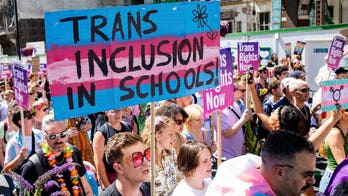Amidst the ongoing discourse surrounding the violence and poverty in Chicago, Pastor Corey Brooks, founder of Project H.O.O.D., advocates for mentorship as an overlooked solution. He encourages critics to actively engage in mentorship rather than merely complaining, emphasizing the transformative power it can have on individuals and communities.
In the face of the relentless barrage of statistics and sensational headlines depicting Chicago's high murder rates, it has become easy to succumb to despair or engage in fruitless finger-pointing. However, amidst this disheartening narrative, one voice stands out, offering a glimmer of hope and a path to positive change.

Mentoring: A Path to Transformation Amidst Chicago's Challenges
Pastor Corey Brooks, founder of the transformative Project H.O.O.D. in Chicago's notorious Englewood neighborhood, believes that mentorship is an overlooked and severely underrated solution to the city's challenges. He urges those who bemoan the state of Chicago to transcend mere rhetoric and actively invest in the lives of young people through mentorship.
Brooks recognizes that the root problems of violence and poverty in Chicago are complex and multifaceted, stemming from a combination of factors including fatherlessness, lack of education, and societal ills. However, he contends that lasting change can be achieved by focusing on the individual, empowering and strengthening each person to reach their full potential.

Mentoring: A Path to Transformation Amidst Chicago's Challenges
Mentoring, Brooks explains, is a proven and effective way to facilitate this transformation. It provides young people with guidance, support, and role models, helping them navigate the complexities of life and develop the skills and confidence necessary to succeed. It is a deliberate and sustained investment in the future, where mentors invest time and effort into nurturing the present.
Brooks has witnessed firsthand the profound impact that mentorship can have on the youth of Chicago. At Project H.O.O.D., young people who may have previously felt lost and hopeless have found a beacon of support and encouragement in their mentors. These mentors come from diverse backgrounds, from plumbers to CEOs, and are united by a common desire to make a difference in the lives of their mentees.
While the initial meeting between a mentor and mentee can be tentative, marked by cultural and value clashes, Brooks emphasizes the importance of patience and perseverance. Over time, these relationships often blossom, with mentors providing unwavering support and mentees gaining access to new perspectives and opportunities.
Brooks implores his mentors to be present for their mentees, week after week, no matter the circumstances. This consistent presence, he believes, is the foundation for trust and allows for valuable life advice to be shared. He also encourages his mentees to be proactive in their relationships, asking questions, seeking guidance, and broadening their horizons.
As mentor-mentee relationships deepen, they often transcend the boundaries of their original purpose. They become family-like bonds, bridging cultural, economic, and racial divides. These connections create a sense of community and unity, strengthening the fabric of society and opening up a world of opportunities for the mentees.
Critics of Chicago may choose to indulge in endless complaints, but mentors, Brooks argues, are too busy actively addressing the challenges. They are the unsung heroes who are making a tangible difference in the lives of young people, providing them with the tools and support they need to overcome adversity and achieve their dreams.
Therefore, Brooks urges everyone to consider embracing mentorship as a powerful tool for change. Instead of merely lamenting the problems, it is time to become part of the solution, to invest in the future by pouring effort into the present. By mentoring a young person, you can become an agent of positive transformation, helping to shape a brighter future for Chicago and beyond.










